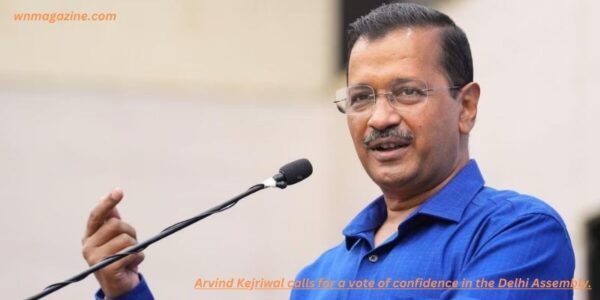Arvind Kejriwal calls for a vote of confidence in the Delhi Assembly.

Arvind Kejriwal calls for a vote of confidence in the Delhi Assembly.

Arvind Kejriwal calls for a vote of confidence in the Delhi Assembly.
In the ongoing Delhi excise policy case, Arvind Kejriwal, the Chief Minister of Delhi, received a sixth summons from the Enforcement Directorate (ED) on February 14, asking him to appear on February 19. In response to the ED’s persistent summons, Kejriwal introduced a resolution of confidence in the assembly on Friday, emphasizing the need to showcase the assembly’s trust in the council of ministers.
Also Read: wellhealthorganic vitamin b12
The ED had issued the sixth summons after Kejriwal failed to appear on February 2, leading to an adjournment of the court. The Rouse Avenue court later called for Kejriwal’s personal appearance on February 17, highlighting his legal obligation to cooperate with the ED inquiry. The discussion of the confidence motion is set for Saturday, as confirmed by Speaker Ram Niwas Goel. However, opposition leader Ramvir Singh Bidhuri disputed the inclusion of Saturday’s business in the previously released timetable.
The scheduling of the confidence motion coincides with Kejriwal’s court appearance on February 17 related to the ED summons regarding a liquor scam. Bidhuri alleged that the motion was strategically arranged to Arvind Kejriwall appearing in court. Kejriwal, during the trust vote presentation, reiterated his claim that the Bharatiya Janata Party (BJP) was trying to lure AAP MLAs to overthrow his administration.
Earlier, two AAP MLAs independently informed Bidhuri that BJP leaders had approached them, indicating that Arvind Kejriwal would be arrested soon. The BJP allegedly spoke with 21 AAP MLAs, offering Rs 25 crore to each, persuading them to join the party and run for office on the BJP ticket. However, according to the MLAs, they rejected the proposal. Kejriwal, in his confidence motion, disclosed the BJP’s attempt to carry out “Operation Lotus” but asserted that all 21 MLAs had declined the offer.
Also Read: well health tips in hindi wellhealth